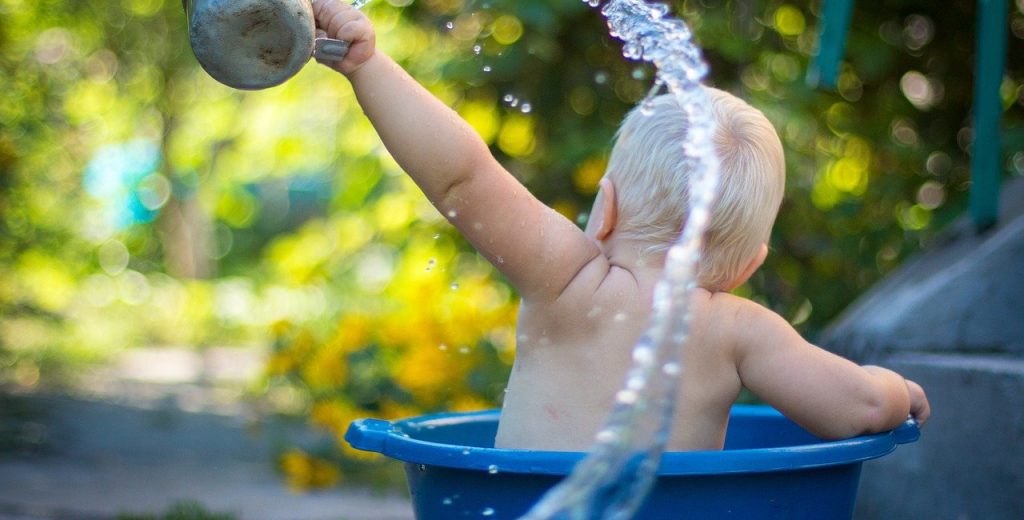How to protect your children from the heat?
High temperatures present a very serious risk of danger to young children. The ideal temperature is between 21 to 24 degrees during the day and 19 to 21 degrees at night. In any case, the difference between inside and outside should not exceed 10 degrees.
Here we give you tips that our Nannies consistently apply for the protection of your treasures.
Above all, it is essential to know the effects of high heat on the child:
- Dehydration
- Exhaustion
- Cramps
- Sunstroke or heat stroke
Here is a non-exhaustive list of the precautionary measures to be taken in the event of high heat:
- In absolute terms, try to find a place that has air conditioning without placing your child in front of the ventilation. If your house does not have air conditioning, take your children to a cool place. Libraries, for example, are a perfect shelter from the heat.
- Your children must continue to go out to stretch their legs and let off their excess energy, but their walks must absolutely take place early in the morning and at nightfall in order to enjoy maximum freshness.
- Encourage your children to drink water regularly and have it available, even if they don’t ask for it. In hot weather, babies who are bottle-fed may be given extra breast milk, but should not drink water, especially for the first 6 months of life.
- Avoid exposing your children to the sun, babies in particular have very sensitive skin, even brief exposure can cause a first degree burn. During the first six months it is contraindicated to protect their skin with sunscreen because of the risk of allergy, but from six months they should not be taken out without a high index infant cream. Also, remember that sunscreens should always be applied 30 minutes before exposure and renewed every two or three hours.
- Dress your children in light, light-colored clothing with a single layer of absorbent fabric that will maximize sweat evaporation. Children with a lower ability to sweat than adults should be dressed with care.
- Plan for a much longer rest period. The heat often tires children (and their parents).
- When your child is hot, give them a lukewarm bath or spray them with cold water. Swimming is another effective way to stay cool while being active.
When should I contact a doctor?
Your pediatrician should be called immediately if your child has any of the following symptoms. He will give you emergency instructions and guide you if your child requires care.
- Fainting
- Extreme fatigue
- Headache
- Fever
- Intense thirst
- No urine production for several hours
- Nausea
- Vomiting
- Breathing fast or deeper than usual
- Numbness of the skin or tingling
- Muscle aches
- Muscle spasms
Because the health of your children is our first concern, International Nannies applies a methodology based on risk prevention, constant vigilance and great speed in the implementation of emergency actions.

